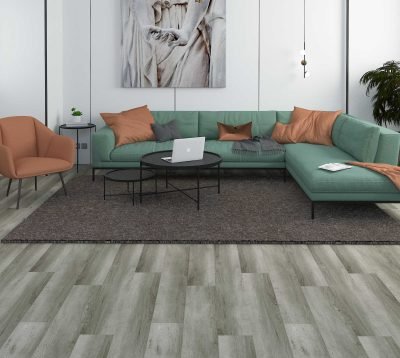A basement can be a valuable space in a home, providing extra living or storage space. However, many homeowners face the challenge of dealing with dampness and water infiltration in their basements. This not only poses a threat to the structural integrity of the home but also creates an environment conducive to mold growth and other water-related issues. In this article, we will delve into the benefits of interior basement waterproofing, a proactive solution to ensure a dry and healthy living space.
Understanding Interior Basement Waterproofing:
Interior basement waterproofing is a comprehensive approach aimed at preventing water infiltration from the inside of the basement. This method involves the installation of drainage systems, sealants, and other moisture-resistant materials to manage and redirect water away from the interior of the basement. Unlike exterior waterproofing, which addresses issues from the outside, interior waterproofing is applied within the basement walls.
Protection Against Water Damage:
One of the primary benefits of interior basement waterproofing is its effectiveness in protecting your home from water damage. By creating a barrier between the interior space and potential water sources, such as rain or groundwater, this method prevents water from seeping through the walls and floor. This proactive approach significantly reduces the risk of water-related damage to the foundation, walls, and belongings stored in the basement.
Mold Prevention and Improved Indoor Air Quality:
Basements are notorious for being damp, dark environments – conditions ideal for mold growth. Interior basement waterproofing plays a crucial role in mold prevention by reducing the moisture levels within the space. By eliminating the excess humidity that fosters mold development, homeowners can ensure a healthier indoor environment. Improved air quality in the basement also contributes to better overall indoor air quality throughout the entire home.
Enhanced Structural Stability:
Water infiltration can compromise the structural integrity of a home over time. The constant exposure to moisture weakens the foundation, leading to issues such as cracks, efflorescence, and even basement wall bowing. Interior basement waterproofing benefits mitigates these risks by preventing water from penetrating the foundation, thus preserving the structural stability of the home. This proactive measure can ultimately save homeowners from expensive repairs and renovations down the line.
Increased Home Value:
Investing in interior basement waterproofing not only protects your home but also adds value to your property. Prospective buyers are often wary of homes with damp or wet basements, as these issues can be a red flag for potential structural problems. By having a dry and well-protected basement, you can increase your home’s resale value and attract more potential buyers, offering them peace of mind regarding the property’s long-term durability.
Utilization of Basement Space:
A waterproofed basement opens up the opportunity to utilize the space for various purposes. Whether you plan to create an additional living area, a home office, or a recreational space, a dry basement is a versatile and functional part of your home. Interior basement waterproofing empowers homeowners to transform their basements into valuable extensions of their living spaces, adding both comfort and functionality to the home.
Cost-Effective Solution:
Compared to dealing with water damage and subsequent repairs, interior basement waterproofing is a cost-effective solution in the long run. Preventing water infiltration from the inside is generally less expensive than extensive exterior renovations. By addressing the issue proactively, homeowners can avoid costly repairs and potential health hazards associated with mold and mildew growth.
Eco-Friendly Approach:
Interior basement waterproofing is often considered a more environmentally friendly option compared to some exterior waterproofing methods. The use of sealants and drainage systems helps manage water without disrupting the surrounding landscape. This eco-conscious approach aligns with the growing trend of sustainable home improvement solutions that benefit both homeowners and the environment.
Interior basement waterproofing is a proactive and effective solution for homeowners seeking to protect their homes from water damage, mold, and structural issues. The benefits extend beyond preserving the structural integrity of the home, encompassing improved indoor air quality, increased home value, and the opportunity to utilize basement space. By investing in interior basement waterproofing, homeowners can ensure a dry, healthy, and functional living environment for years to come.




